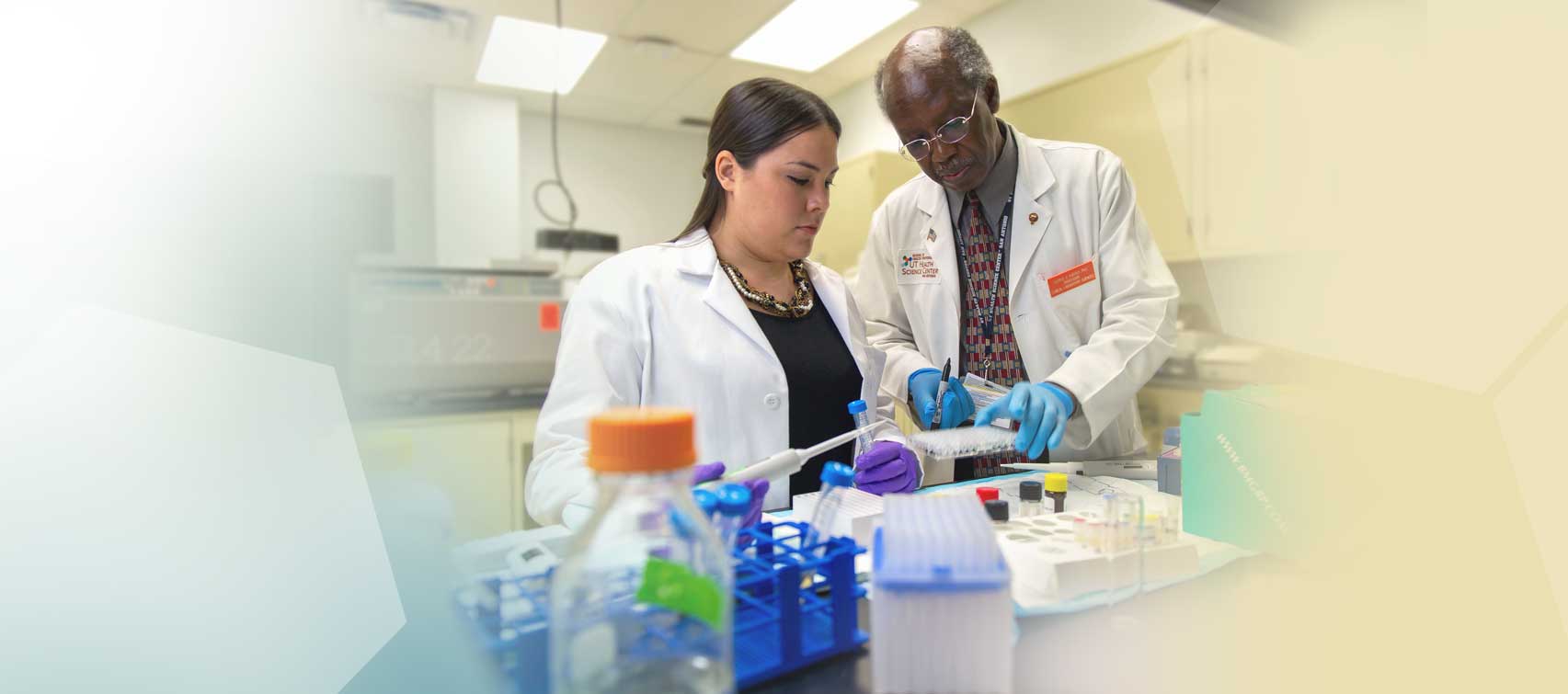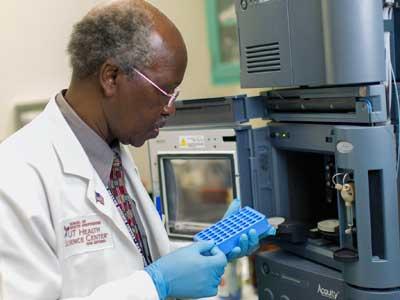“People watch crime scene investigation shows, and they don’t understand we are the ones doing the tests. We are the ones hidden away. I teach students who will go unnoticed but will have a huge impact on many lives,” said George Kudolo, Ph.D., professor and researcher.
For almost 20 years, George Kudolo, Ph.D., professor of clinical laboratory sciences and director of the Graduate Toxicology Program, has taught his students how to save lives and how to determine cause of death. But you will never meet his students or see them at work. His students toil away each day in hospital pathology labs and in medical examiner morgues. They perform tests that determine a doctor’s decision on life-saving treatments. And, their meticulous work tells a loved one or a court of law the cause of a person’s demise.
A Distinguished Teaching Professor, Dr. Kudolo teaches undergraduate students working on their bachelor of science in clinical laboratory science and on post-baccalaureate certificates in clinical chemistry.
“My undergraduate students are trained to be clinical laboratory scientists, who also are referred to as medical laboratory scientists. They learn how to perform crucial tests in hospital and lab settings,” he said.
“Decisions made by physicians are based 60 percent to 70 percent on lab results. These students may never meet the patient, but their lab work will affect the patient’s health and wellbeing.”
Educating the next generation of public-sector toxicologists
Clinical lab scientists perform tests that serve as the basis for diagnosis and management of conditions such as kidney disease, heart disease and cancer. Their testing is the key to monitoring diseases such as diabetes and helps to prevent costly complications. In addition, these scientists detect and track diseases. As director and sole instructor of the graduate program in toxicology, Dr. Kudolo trains graduate students to be toxicology chemists. Students, who earn a master of science in forensic/analytic toxicology, can perform testing for the pharmaceutical industry and in therapeutic drug labs in clinics and hospital. These toxicologists also work in medical examiner labs to help determine cause, manner and mechanism of death.
Dr. Kudolo said 70 percent of the staff at the Bexar County Medical Examiner’s Office Toxicology Laboratory are graduates of the graduate program at the Health Science Center. In fact, its first female chief toxicologist is a 2007 graduate. Graduates also work for the Texas Department of Public Safety and the U.S. Drug Enforcement Administration with one graduate currently overseeing the DEA’s Forensic Science Program in Washington, D.C.
The students do their training at the Bexar County Medical Examiner’s Office and the Air Force Drug Testing Laboratory at Lackland Air Force Base.
“Forensic toxicologists must be able to figure out how to identify the source of a toxicity. Was it multiple drugs interacting? Was it exposure to chemicals in the environment that predisposed the person to an otherwise benign agent? They must determine the cause of death by using all the testing available to them,” he said.
“People watch crime scene investigation shows, and they don’t understand we are the ones doing the tests. We are the ones hidden away. I teach students who will go unnoticed but will have a huge impact on many lives,” he added.
Dr. Kudolo said he also enjoys teaching students working on a master’s degree in physician assistant studies. He teaches these future physician assistants how to interpret the tests performed by the clinical laboratory scientists.
“The reason I love teaching the PAs is it allows us to produce a group of health care providers who know what the lab does. By understanding lab medicine, these physician assistants will better understand the testing results and how to treat their patients,” he said.
'I want to answer every question.'
Dr. Kudolo said he started out as a basic science researcher who thought teaching might give him an opportunity to share his knowledge.
With a Ph.D. in clinical biochemistry and reproduction from the University of London Institute Ob/Gyn (which is now the Imperial College of Science, Technology and Medicine), he thought teaching would get him out of the lab and make him less introverted.
“Then I was bitten by teaching. Now it is my first love,” he said. “I must be prepared for each class. I want to answer every question. Teaching makes me learn new things. I always want to be one step ahead of my students. They push me to learn every day.”
Last year, Dr. Kudolo was honored by The University of Texas System as a recipient of a Regents’ Outstanding Teaching Award. He has been at the Health Science Center for 26 years.

